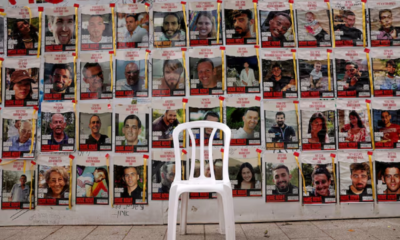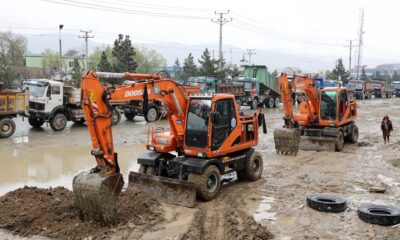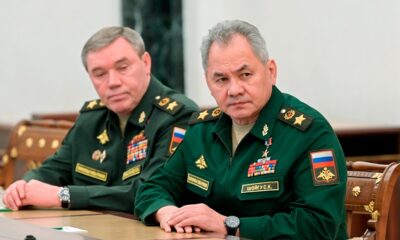Latest News
Contracts worth over $6.5 billion signed to kick-start mining sector
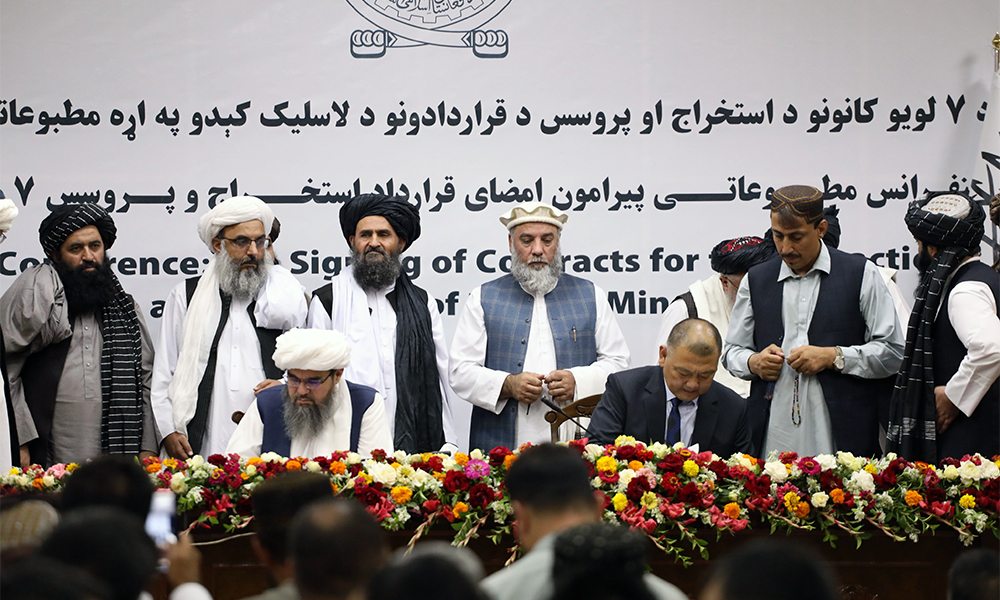
Contracts worth $6.557 billion for seven large-scale mines were signed on Thursday, August 31, between the Ministry of Mines and Petroleum and various companies.
These contracts were signed in the presence of the Islamic Emirate of Afghansitan’s Deputy Prime Minister for Economic Affairs Mullah Abdul Ghani Baradar Akhund.
The contracts involved four sections of the major iron ore mine in Ghorian district in Herat Province.
The company that secured the contract for the first section was Watan Darakhshan Company and its subsidiary Azaran Industrial Structures Company.
Sahil Middle East Mining & Logistics Company and its Afghan and Turkish partners, Dara-e-Noor and Epcol respectively, were awarded the contract for the second section.
Shamsh, an Afghan company, along with British companies GBM and AD Resources, were awarded the contract for the third block.
The fourth contract went to Bakhtar Steel Company and its Iranian partners Ahya Sepahan and Parsian.
In addition, the contract for one section of the lead and zinc mine in Tulak district of Ghor province was awarded to Afghan Invest Company.
The contract to excavate gold from the Samti mine in Chah Ab district of Takhar province was awarded to the China-Afghanistan Company with Zarawar Afghanistan Private Company being the shareholder; and a contract for the second Mes Aynak mine in Logar province was awarded to Turia Private Company.
A total of $6.557 billion will be invested in these seven projects, which will collectively create thousands of jobs.
This comes just days after the acting minister of mines and petroleum Shahabuddin Delawar met with Wang Jiarui, the general director of China Metallurgical Group Corporation (MCC), which has the contract to mine copper at Mes Aynak.
Delawar and Wang discussed operational details as well as issues around the archaeological site, which still contains buried artifacts.
Delawar said at the meeting that the Aynak copper mine project was a key priority for the IEA and that their main goal is to get the mining sector up and running.
“The Islamic Emirate of Afghanistan is committed to putting this project into operation as soon as possible, so that its practical work begins and job opportunities are created for the people,” he said.
Latest News
Three road construction projects launched in Kabul
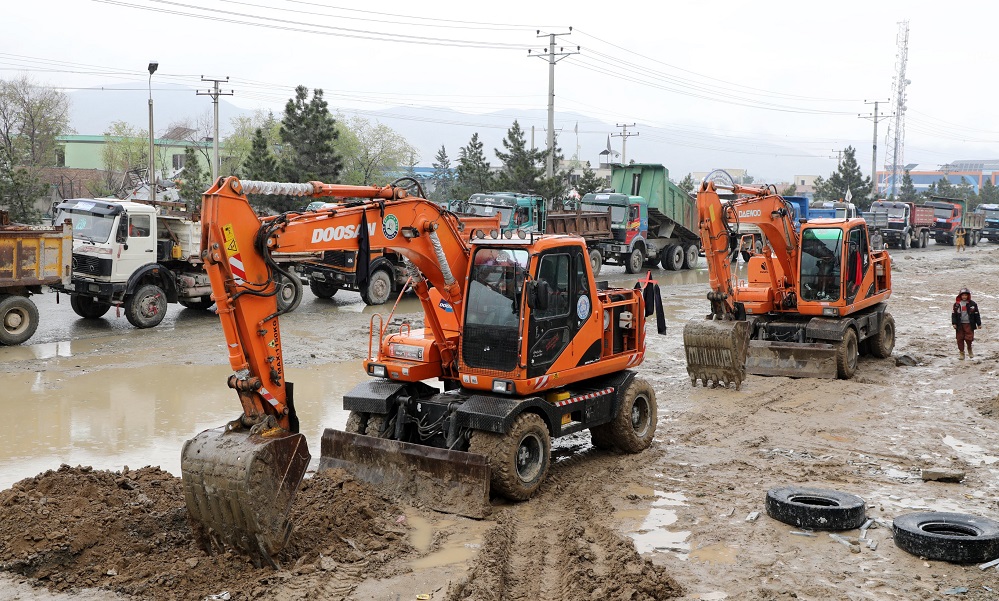
Three road construction projects worth about one billion Afghanis started in capital Kabul on Saturday.
The projects were inaugurated by Deputy Prime Minister for Economic Affairs Mullah Abdul Ghani Baradar.
The projects are: the second phase of Kotal Khairkhane road, the first part of the Shahid square to Qasaba, and the Airport road to Gumruk.
In the inauguration ceremony, Mullah Baradar said that Kabul municipality is working hard to beautify and regulate the city, and people should cooperate with the government in protecting public benefit projects.
He directed the officials of Kabul municipality to complete the mentioned projects on time and with good quality.
The second phase of Kotel Khairkhaneh road is 2.5 kilometers long and 60 meters wide. Thie road will cost 364 million Afghanis and will be completed in 20 months.
The Shahid square-Qasaba road is 1.8 kilometers long and 45 meters wide, which will be built at a cost of 175 million Afghanis in one year.
The Airport-Gumruk road is 2.7 km long and 60 meters wide, which will be completed at a cost of 407 million Afghanis in 20 months.
The projects are funded by Kabul Municipality.
Latest News
Russian defense minister says main threat for SCO countries emanates from Afghanistan
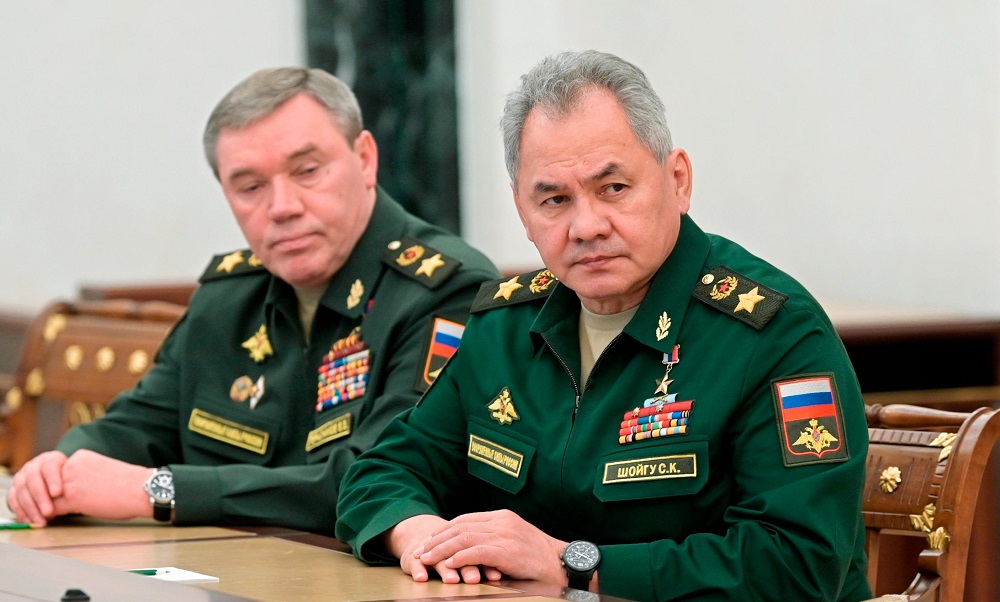
Russian Defense Minister Sergey Shoygu said on Friday that the main threat for the Shanghai Cooperation Organization (SCO) members emanates from Afghanistan where international terrorist groups find shelter due to unstable and indefinite political situation.
Speaking at a meeting of the SCO defense ministers in Kazakhstan’s capital Astana, Shoygu said Washington has stepped up efforts to restore its positions in Central and South Asia that were lost after the withdrawal of coalition troops from Afghanistan, Anadolu Agency reported.
The military chief called “unacceptable” the deployment of the American military infrastructure in the region, arguing that intentions should be regarded as “a direct threat to stability in the SCO space.”
According to him, the US is trying to impose a new security system in the Asia-Pacific region for dominance.
This comes as the Islamic Emirate has repeatedly emphasized that it does not allow anyone to pose threats to any other country from Afghanistan soil.
Recently, Mohammad Yaqub Mujahid, Acting Minister of National Defense Mohammad Yaqub Mujahid said that no destructive groups including Daesh have physical presence in Afghanistan,
Latest News
IEA calls Mujahideen Victory Day ‘freedom day’

In a statement on the occasion of the 32nd anniversary of the victory of the Mujahideen against the then communist government, the Islamic Emirate said that it is a day of freedom of the Afghan nation.
The Islamic Emirate described the coup by People’s Democratic Party of Afghanistan on 27th April 1978 as a dark day in history, as a result of which the people of Afghanistan suffered severe human and financial losses.
The statement said that the Afghan nation suffered huge casualties in their 14-year struggle against the thoughts and actions of the communists, as 1.5 million people died and millions more faced various hardships.
“After 20 years of Jihad, our country was freed from another occupation and the Islamic system was established, so the Islamic Emirate will make its utmost efforts so that the fruits of decades of sacrifice and struggle of this nation are not wasted,” the statement said.
“It was the wish of the martyrs to fully implement the Islamic system in the country, and therefore, the Islamic Emirate is trying to facilitate development and prosperity under the shadow of the Islamic system in order to realize the goals of the Afghan people’s jihads,” it added.
-

 Latest News4 days ago
Latest News4 days agoRashid Khan named AWCC’s brand ambassador
-

 World4 days ago
World4 days agoMalaysian navy helicopters collide in mid-air, 10 killed
-

 Sport4 days ago
Sport4 days agoJaiswal ton powers Rajasthan to big IPL win
-

 World4 days ago
World4 days agoNorth Korea officials visit Iran in a rare public trip
-

 Latest News5 days ago
Latest News5 days agoAt least 1,500 families affected by recent floods: IRW
-

 Sport5 days ago
Sport5 days agoMawj Sahil player scores stunning halfway line goal in 1-0 win over Jawanan Wahedi
-

 Sport3 days ago
Sport3 days ago‘Serious talent’ Fraser-McGurk bonds with Warner to light up IPL
-

 Latest News4 days ago
Latest News4 days agoUS report cites ‘significant deterioration’ in Afghan women’s rights last year




